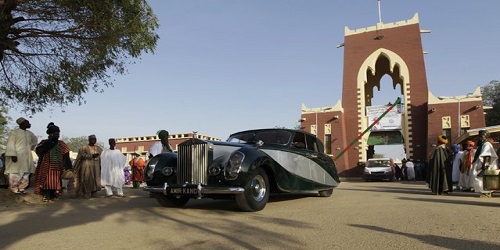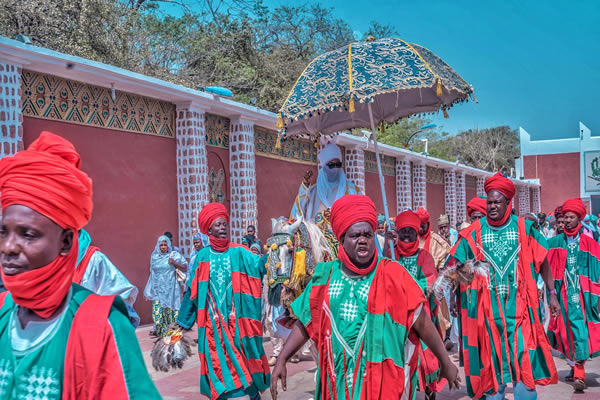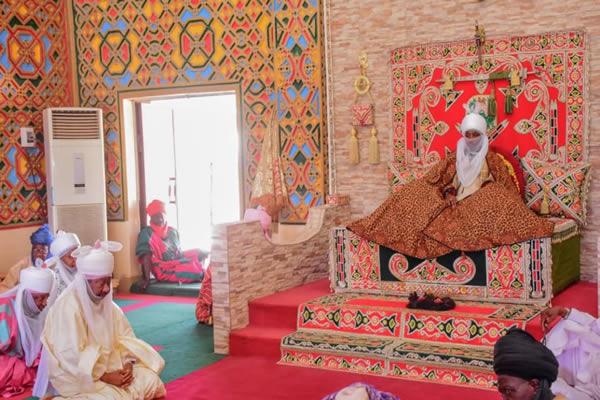
The Kano Emirate is a traditional state in Northern Nigeria with headquarters in the city of Kano, capital of the modern Kano State. Preceded by the Emirate of Kano the Council was formed in 1903 after the British pacification of the Sokoto Caliphate. Ado Bayero became the emir in 1963, reigning for 50 years until his death in 2014, he oversaw the transformation of the Emirate under Nigeria's federal constitution that subjects Northern Nigeria's Emirates to political leaders.
The emir of Kano serves as the leader of the Tijaniyya sufi order in Nigeria, historically the second most important Muslim position in Nigeria after the Sultan of Sokoto who is the leader of the more populous Qadiriyya sufi order in Nigeria. On 8 June 2014, former Nigerian central banker Sanusi Lamido Sanusi was selected to succeed Bayero as Emir of Kano.British forces captured Kano in 1903. The 7th emir of Kano, who was in Sokoto when Kano was occupied, was captured and exiled to Lokoja where he died in 1926.

The British immediately made Kano an important administrative centre in Northern Nigeria.The role of the Kano Emirate steadily grew in the new Northern Nigeria. In the 1940s administrative re-organisation restored the consultative status of the ancient Taran Kano or council of Nine, this receded the status of the Emir as the Sole Native Administrator and instead made him the head of a Native Authority.
Also in the 1940s Northern Nigerian agitation for independence from the South led to a national re-organisation that made Nigeria a Federation of Independent and autonomous regions Kano became the fulcrum of a new Northern political class that emerged to fight against perceived southern influence/ In 1950 the Northern Elements Progressive Union emerged in Kano as the first political party in Northern Nigeria, it was swiftly followed by the emergence of the Northern People's Congress and other smaller political parties.

In 1963, alligations of fraud and misappropriation were laid against the Emir of Kano Sanusi Bayero. A panel headed by D M Muffet later found evidence of misappropriation and recommended the resignation of Sanusi. Immediately afterwards, Emir Sanusi abdicated and was replaced by his uncle Inuwa Abbas who reigned for only nine months before his death.
The abdication of Sanusi led to agitation of Kanoan Independence and led to the emergence of the Kano People's Party. Inuwa was succeeded by his nephew Ado Bayero who reigned for 50 years before his death on 6 June 2014.
Various administrative re-organisations in Bayero's reign saw a gradual weaning of the Emirs powers. Although the Emir has limited formal powers, he continues to exert considerable authority and provides leadership on issues such as the tension between Christians and Muslims in Northern Nigeria.




